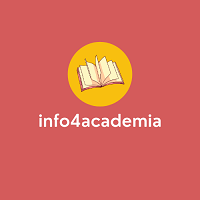Ethical Guidelines for Journal Publication
Publishing an article in a peer-reviewed journal is essential for developing a coherent and respected knowledge network. It directly reflects the quality of the authors’ work and the institutions that support them. Peer-reviewed articles support and embody the scientific method. It is therefore important to establish standards of expected ethical behavior for all parties involved in publishing: the authors, the journal editor, the peer reviewers, the publisher, and the academic community.
Furthermore, the authors’ submission implies that the manuscript has not been published in any language, wholly or partly, and is not currently submitted for publication elsewhere. Editors, authors, and reviewers within the International Journal of Applied Business and International Management (IJABIM) are committed to good publication practices and accept the responsibility for fulfilling the following duties and responsibilities, as set by the COPE Code of Conduct for Journal Editors. As part of the Core Practices, COPE provides guidelines available at http://publicationethics.org/resources/guidelines.
Publication Decisions
The editor of the International Journal of Applied Business and International Management (IJABIM) is responsible for deciding which of the articles submitted to the journal should be published. The validation of the work and its importance to researchers and readers must always drive such decisions. The editors may be guided by the policies of the journal’s editorial board and constrained by legal requirements concerning libel, copyright infringement, and plagiarism.
The editors may consult with other editors or reviewers in making this decision.
Fair Play
An editor evaluates manuscripts for their intellectual content without regard to the race, gender, sexual orientation, religious belief, ethnic origin, citizenship, or political philosophy of the authors.
Confidentiality
The editor and any editorial staff must not disclose any information about a submitted manuscript to anyone other than the corresponding author, reviewers, potential reviewers, other editorial advisers, and the publisher, as appropriate.
Disclosure and Conflicts of Interest
Unpublished materials disclosed in a submitted manuscript must not be used in an editor’s own research without the author’s express written consent.
Duties of Reviewers
Contribution to Editorial Decisions
Peer review assists the editor in making editorial decisions and, through communication with the author, may also help the author improve the paper.
Promptness
Any selected reviewer who feels unqualified to review the research reported in a manuscript or knows that prompt review will be impossible should notify the editor and excuse themselves from the review process.
Confidentiality
Any manuscripts received for review must be treated as confidential documents. They must not be shown to or discussed with others except as authorized by the editor.
Standards of Objectivity
Reviews should be conducted objectively. Personal criticism of the author is inappropriate. Reviewers should express their views clearly with supporting arguments.
Acknowledgment of Sources
Reviewers should identify relevant published work that the authors have not cited. Any statement that an observation, derivation, or argument had been previously reported should be accompanied by the relevant citation. Reviewers should also inform the editor of any substantial similarity or overlap between the manuscript under consideration and any other published paper they know personally.
Disclosure and Conflict of Interest
Privileged information or ideas obtained through peer review must be kept confidential and not used for personal advantage. Reviewers should not consider manuscripts with conflicts of interest resulting from competitive, collaborative, or other relationships with any authors, companies, or institutions connected to the papers.
Duties of Authors
Reporting Standards
Authors of reports of original research should present an accurate account of the work performed and an objective discussion of its significance. Underlying data should be represented accurately in the paper. A paper should contain sufficient detail and references to allow others to replicate the work. Fraudulent or knowingly inaccurate statements constitute unethical behavior and are unacceptable.
Originality and Plagiarism
Authors should ensure that their works are entirely original. If they have used the work and/or words of others, these should be appropriately cited or quoted.
Multiple, Redundant, or Concurrent Publication
An author should not generally publish manuscripts describing essentially the same research in more than one journal or primary publication. Submitting the same manuscript to multiple journals concurrently constitutes unacceptable publishing behavior.
Acknowledgment of Sources
Proper acknowledgment of the work of others must always be given. Authors should cite publications that have influenced the nature of the reported work.
Authorship of the Paper
Authorship should be limited to those who have made significant contributions to the conception, design, execution, or interpretation of the reported study. All who have made significant contributions should be listed as co-authors. Others who have participated in substantive aspects of the research project should be acknowledged or listed as contributors. The corresponding author should ensure that all appropriate co-authors and no inappropriate co-authors are included in the paper and that all co-authors have seen and approved the final version of the paper and agreed to its submission for publication.
Disclosure and Conflicts of Interest
All authors should disclose any financial or other substantive conflicts of interest that might be construed to influence the results or interpretation of their manuscript. All sources of financial support for the project should be disclosed.
Fundamental Errors in Published Works
When an author discovers a significant error or inaccuracy in their published work, the author should promptly notify the journal editor or publisher and cooperate with the editor to retract or correct the paper.













